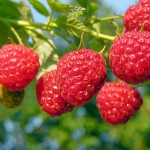US scientists are working to automate blackberry harvesting

Blackberries' delicate nature makes the harvesting process a tedious one, but Mississippi State University (MSU) scientists are working in conjunction with other universities across the country to create a robot that can pick the fruit.
MSU Assistant Professor Xin Zhang, of the Department of Agricultural and Biological Engineering, is working with a team to develop the machine, a blackberry detection and localization system, the “eyes” and “brain” of a robotic harvester system powered by an innovative, artificial intelligence-driven deep learning approach.
The MSU team is developing the localization and detection system, as partners in Georgia Tech work on a soft touch robotic arm and gripper and a bipedal mobile platform to work hand-in-glove with the MSU-trained system. University of Arkansas scientists are focused on post-harvesting fruit analysis.
The gripper is reported by Mississippi State to be equipped with sensors modeled after tiny fingertips, to grab and pick the berry without squeezing and damaging it.
The perception system is powered by a vision-based object detection model that identifies and locates objects of interest YOLOv8 (You Only Look Once, version 8). The technology is "powerful enough to support robots, surveillance systems, and self-driving cars."
During tests, the university says the best-performing model was "94% accurate in identifying ripe berries, 91% for ripening berries, and 88% for unripe berries. It also detected impressively high-resolution images in real-time, clocking 21.5 milliseconds per image."
The $1 million multi-institutional research is funded by the USDA National Institute of Food and Agriculture National Robotics Initiative in collaboration with the National Science Foundation.









































